What the Trump Campaign's Potential Collusion with Russia Really *Means*—and Why It's So Scary
What's good for Trump and Putin is not necessarily good for American citizens.
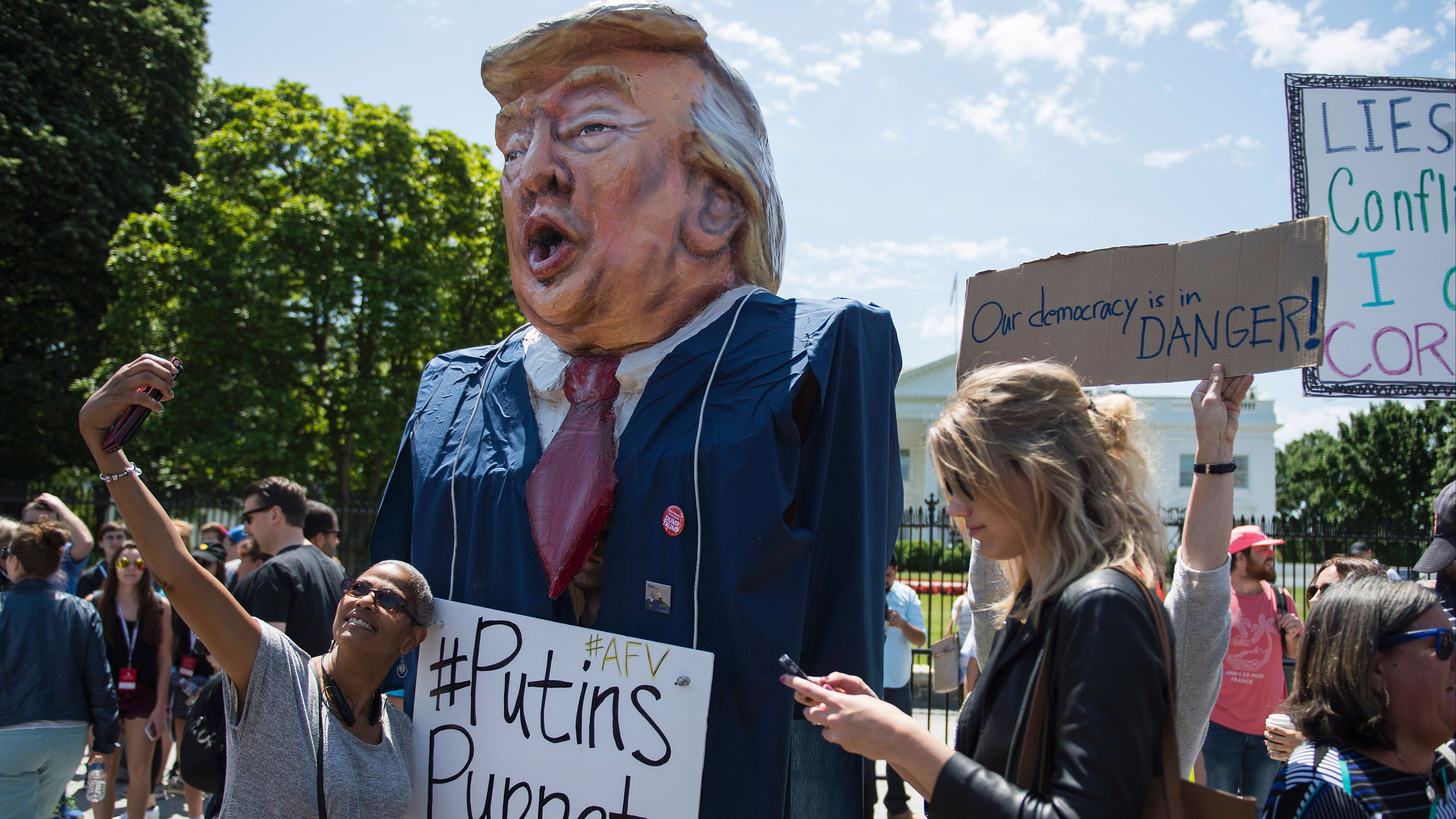
Trump may have campaigned on making America great again, but it's Russia that has arguably gained the most from his rise. And it's Russia that's been in the headlines ever since, as Trump's associates are investigated by various government agencies to determine whether there was collusion with our adversaries in the Kremlin. Never before have so many high-ranking members of a U.S. president's team been investigated for possible inappropriate relationships with a hostile state.
But if you're not familiar with Russia—and it's understandable if you're not since the country basically dropped out of U.S. news when the Cold War ended 25 years ago—you may be wondering what the problem is. How does this affect you (aside from your Twitter feed looking increasingly like a spy novel)? What does it mean when it appears your president could be the puppet of a foreign power? This is still America, right?
Well, sort of.
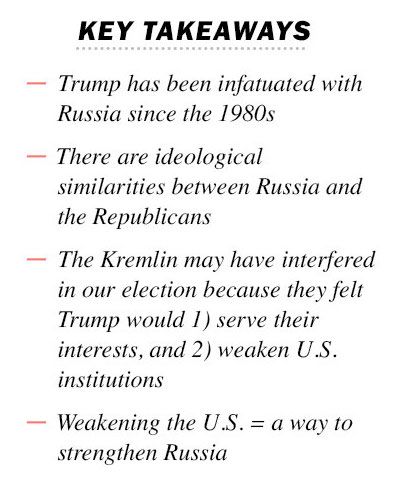
America has faced crises involving deception by our presidents before—Nixon's Watergate scandal; Bush's false pretext for the 2003 Iraq War—but the fundamental question has never been: to what country does POTUS's greatest loyalty lie?
Trump has been infatuated with Russia since the late 1980s, when he was asked to visit the Soviet Union by two officials, Yuri Dubinin and Vitaly Churkin, and was welcomed there on the 4th of July in 1987. Churkin went on to become the Russian ambassador to the United Nations, where he rabidlydefended candidate Trumpbefore abruptly dying in February 2017. (Churkin could be one of the "trail of dead Russians" mentioned in the hearings on election interference.)
When Trump returned to New York in the '80s, he began taking out newspaper ads condemning U.S. foreign policy. He reportedly asked the Reagan administration for a post in the Soviet Union, but was unsuccessful. After filing for multiple bankruptcies in the 1990s and 2000s, Trump and his companies reportedly turned to a number of Russian oligarchs and businessmen for backing, some of them allegedly tied to the Russian mafia.
Though Trump has shifted position on nearly everything, he's never wavered in his devotion to Russia or his praise of Putin, whom he admires as a strongman. Trump praised Putin on American TV in the lead-up to the 2016 presidential election, and Russian state media similarly praised Trump, befuddling U.S.-Russia experts who wondered why the Kremlin seemed so interested in buttering up the host of The Apprentice.
Get exclusive access to fashion and beauty trends, hot-off-the-press celebrity news, and more.
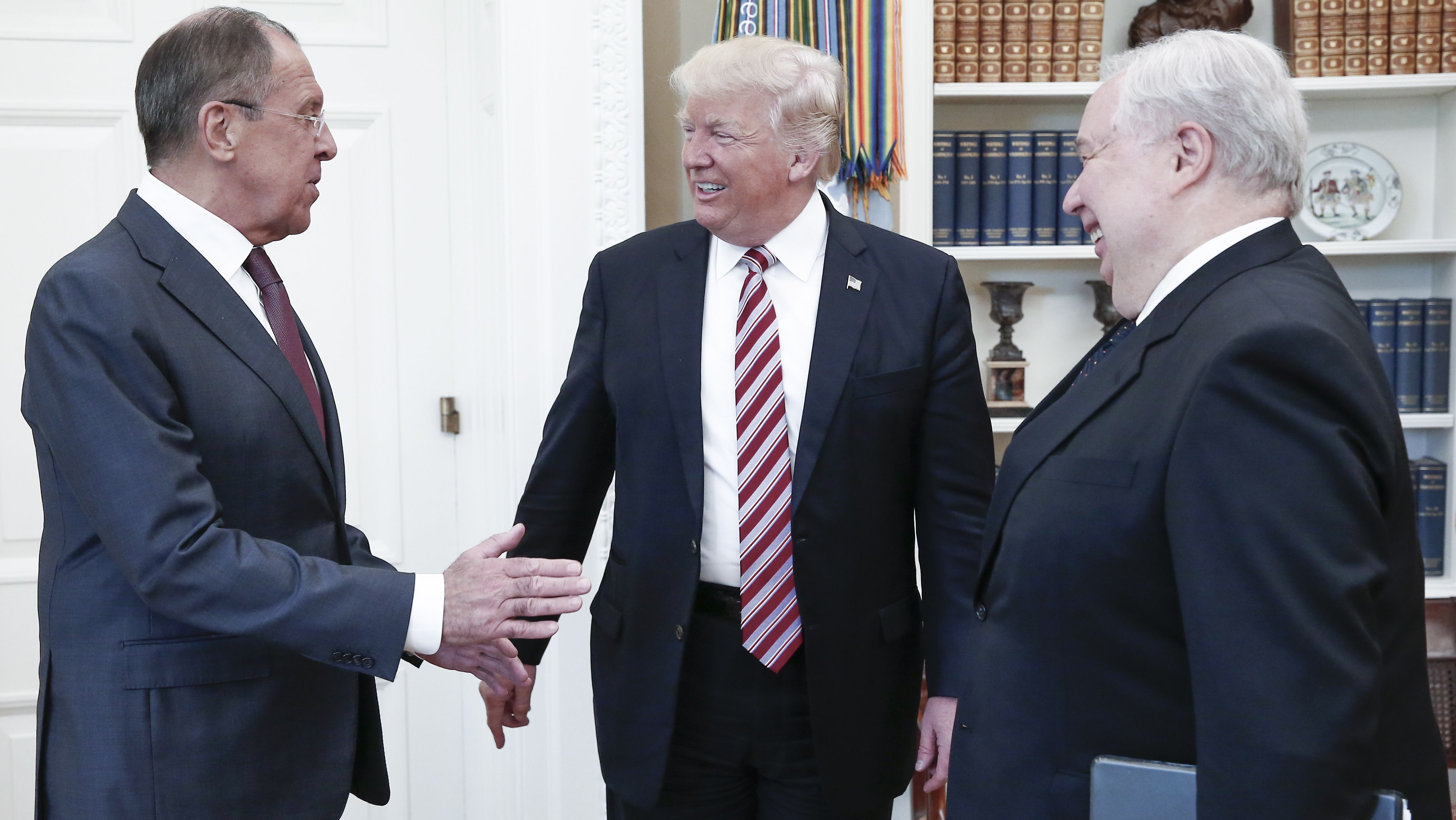
'Trump is all smiles during a meeting with Russia's Foreign Minister Sergei Lavrov (left) and Russia's Ambassador to the United States Sergei Kislyak, in the Oval Office the day after he'd fired FBI director James Comey.'
But the Kremlin's motive for interfering in our election was simple. They were presented with two candidates: One, Hillary Clinton, was a nemesis of Putin who sought to keep sanctions against Russia and honor U.S. commitments to international bodies like NATO. The other, Donald Trump, was a malleable egomaniac who had been trying to work with Russia for 30 years. Trump was also an inherently chaotic candidate whose rise could weaken already struggling U.S. institutions. Since the end of the Cold War, Russia has been tanking economically and losing political influence—weakening the U.S. is a great way for the Kremlin to get back on top.
Like all Trump ventures, the disaster of this Russian interference plays out on many levels via many players. Trump himself may be at the center of the story, but it's his staff (and now his son-in-law) being investigated for potential ties. Their alleged Russian collusion may have been motivated by money—former campaign chairman Paul Manafort was secretly on the payroll of a Russian billionaire to do work to"benefit the Putin government" back in 2005. Or they may have been motivated by ideology—Russia is a xenophobic, increasingly white supremacist state with rhetoric that mirrors that of the Republican Party, particularly under Trump.
RELATED STORIES
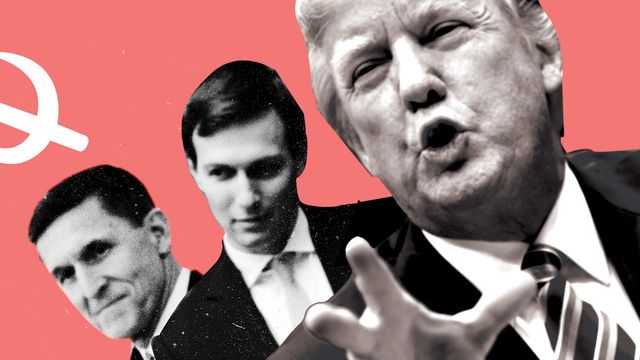
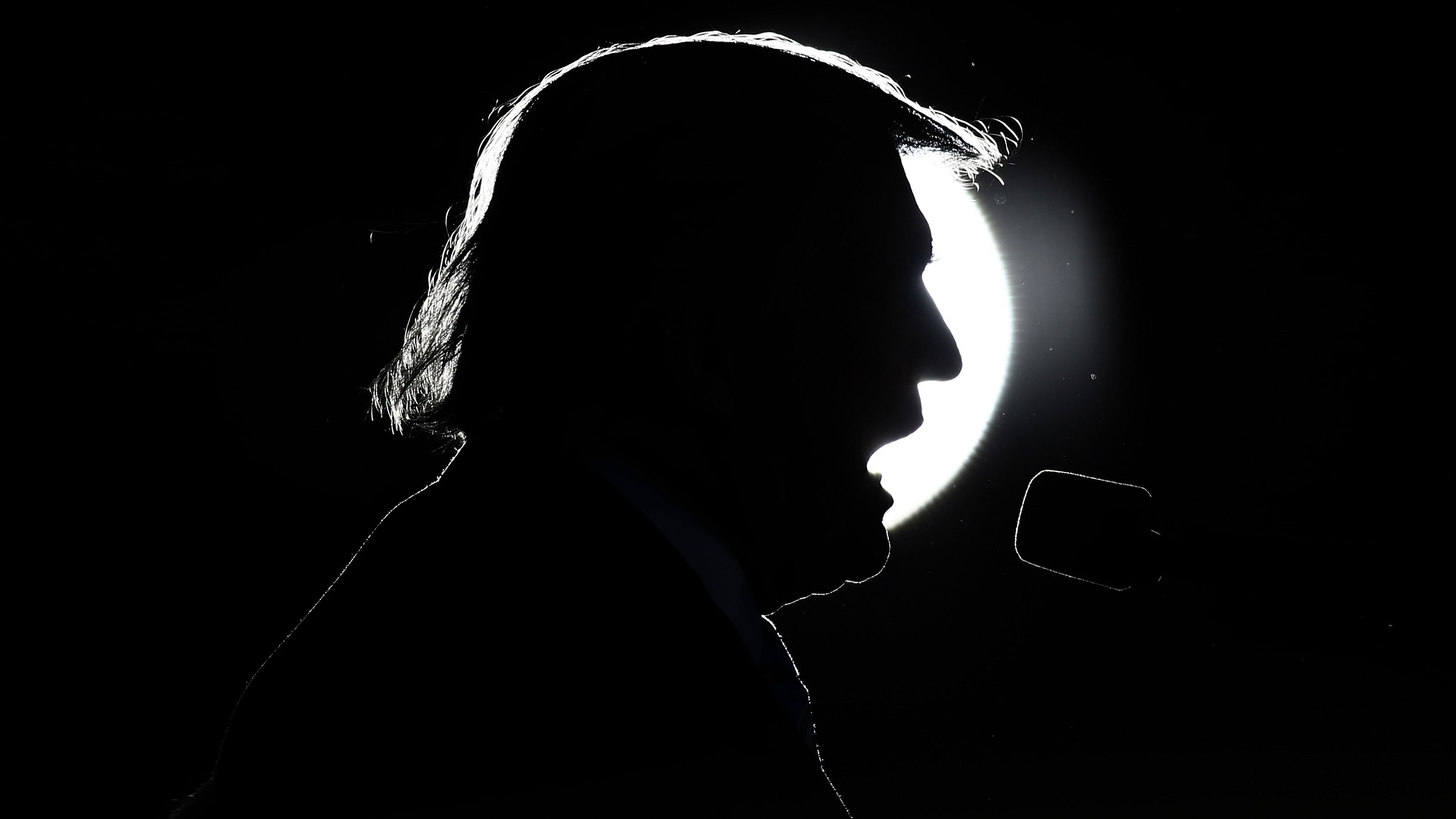
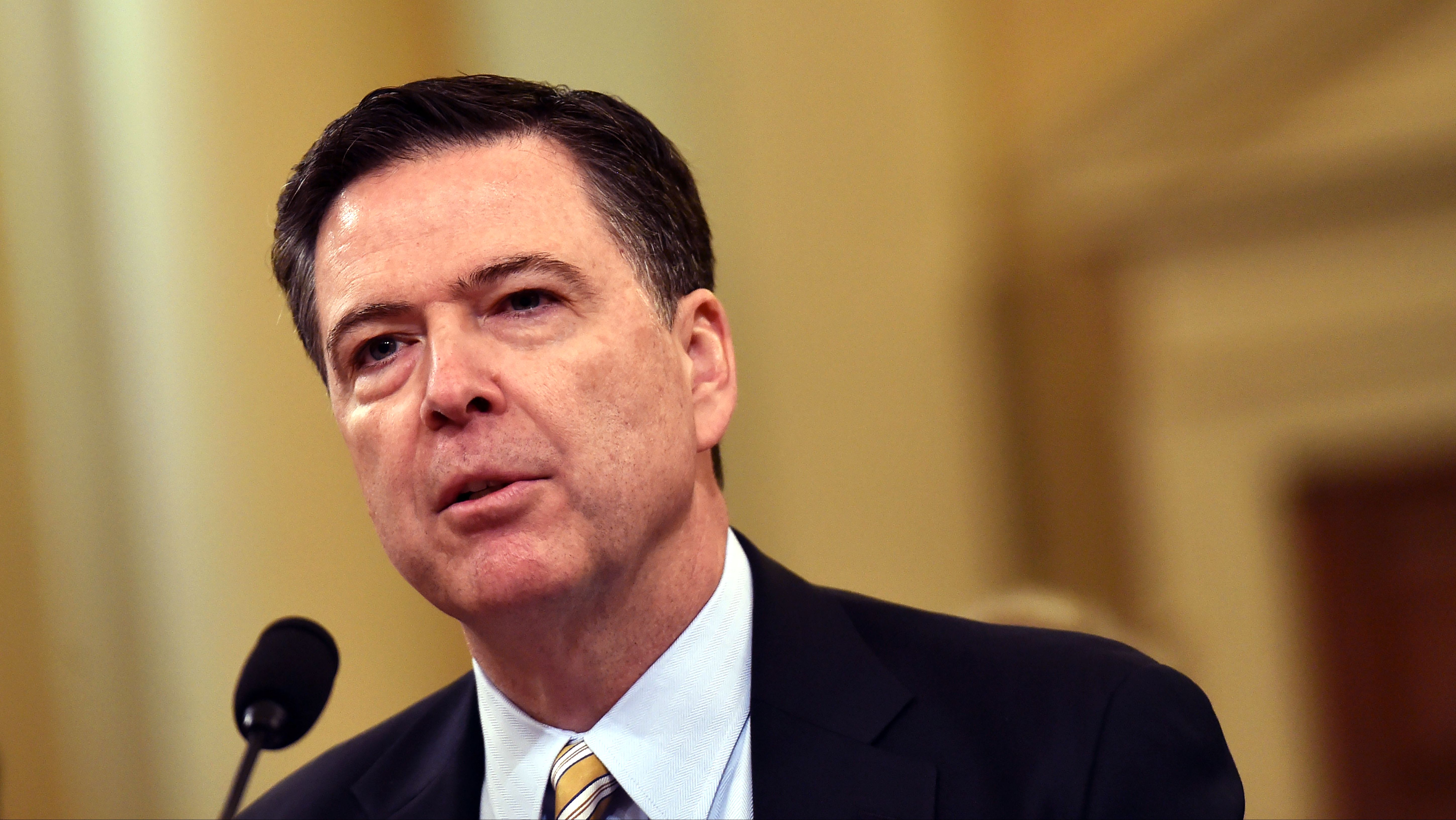
Either way, what's good for Trump and his inner circle may be good for Russia, and vice-versa—but it's not good for ordinary Americans or Russians.
As a hyper-capitalist, authoritarian state dominated by sleazy oligarchs and corrupt officials, Russia suppresses free speech, independent media, public protests, and brutally persecutes marginalized groups like LGBT citizens, Muslims, and migrant laborers. When not busy repressing its own people, the Kremlin tries to repress citizens of other states, both militarily (as in Ukraine) and through media manipulation. It is not, in other words, a government whose ideals we want to align with or empower.
That's what's most disconcerting about the Russian interference scandal: It's the possibility that worst elements in each of our governments could collaborate secretly against the welfare of citizens. It's an affront to sovereignty and to humane governance. As an American, you should care about that.
Sarah Kendzior is a reporter and writer with an academic background in authoritarian states. She's the author of the best-selling book View from Flyover Country. Follow her on Twitter here.